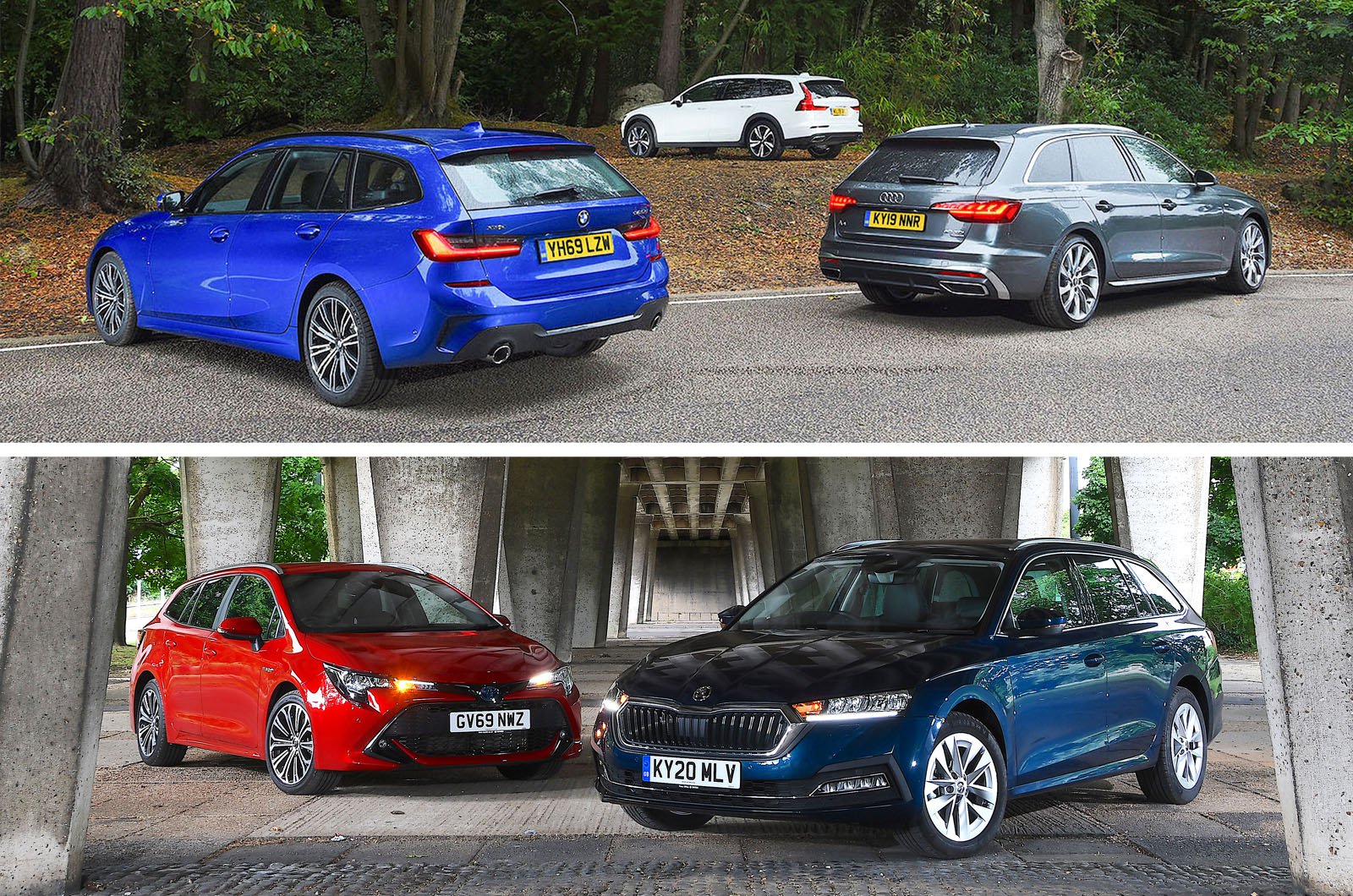
Estate cars can make fine family transport and are great for shifting stuff, because they tend to offer more boot space than the saloons and hatchbacks on which they're based.
However, the best examples of the breed are more than just big; the load area has to be a practical shape, allow easy access and make it possible to secure smaller items. Plus, the rear seats must be simple to fold flat.
Estate cars are often used for business as well as family motoring, so they also need to combine a spacious, comfortable and well-equipped interior with low running costs and an enjoyable drive. And they need to do all that for an affordable price.
Below we've named our top 10 recommendations – and the estate cars to avoid. If anything takes your fancy, simply click on the relevant links to find out more or see how much of a discount you could get by using our free New Car Buying service.
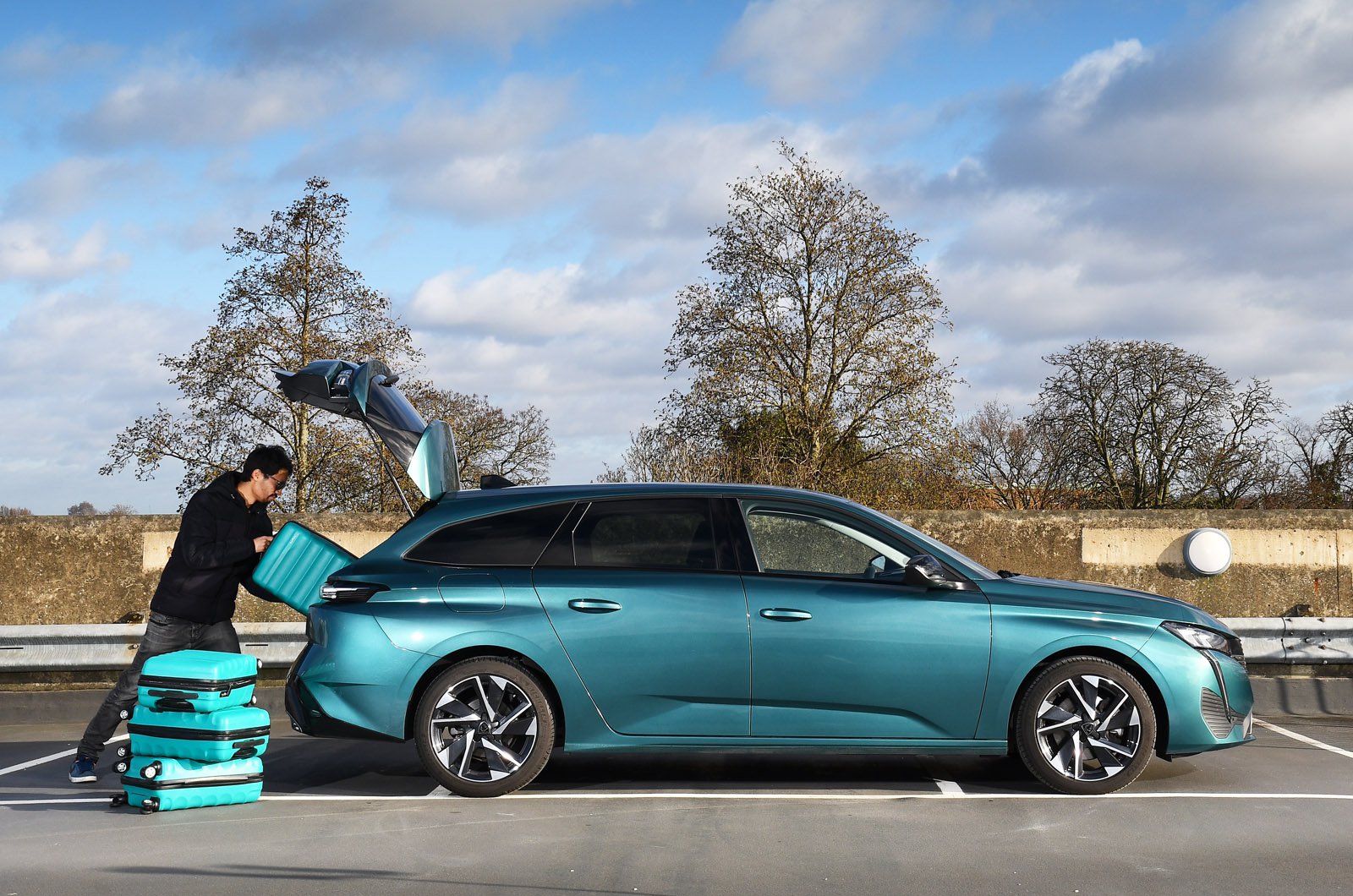
But first, here are the answers to the most frequently asked estate car questions:
Every year, What Car? conducts a reader survey asking people why they bought their current car, to help us determine what buyers are looking for from models in each class. We found that estate car owners value boot space, reliability and interior quality above all else. The Toyota Corolla Touring Sports is our favourite estate car, because it offers a great balance of those strengths, without breaking the bank.
Learn more about how we test cars
When it comes to offering a premium feel, the Porsche Panamera Sport Turismo is a cut above the rest. The interior feels beautifully put together, and Porsche offers extensive customisation options – everything from extended leather trim to an alcantara roof lining – although none of those extras come cheap.
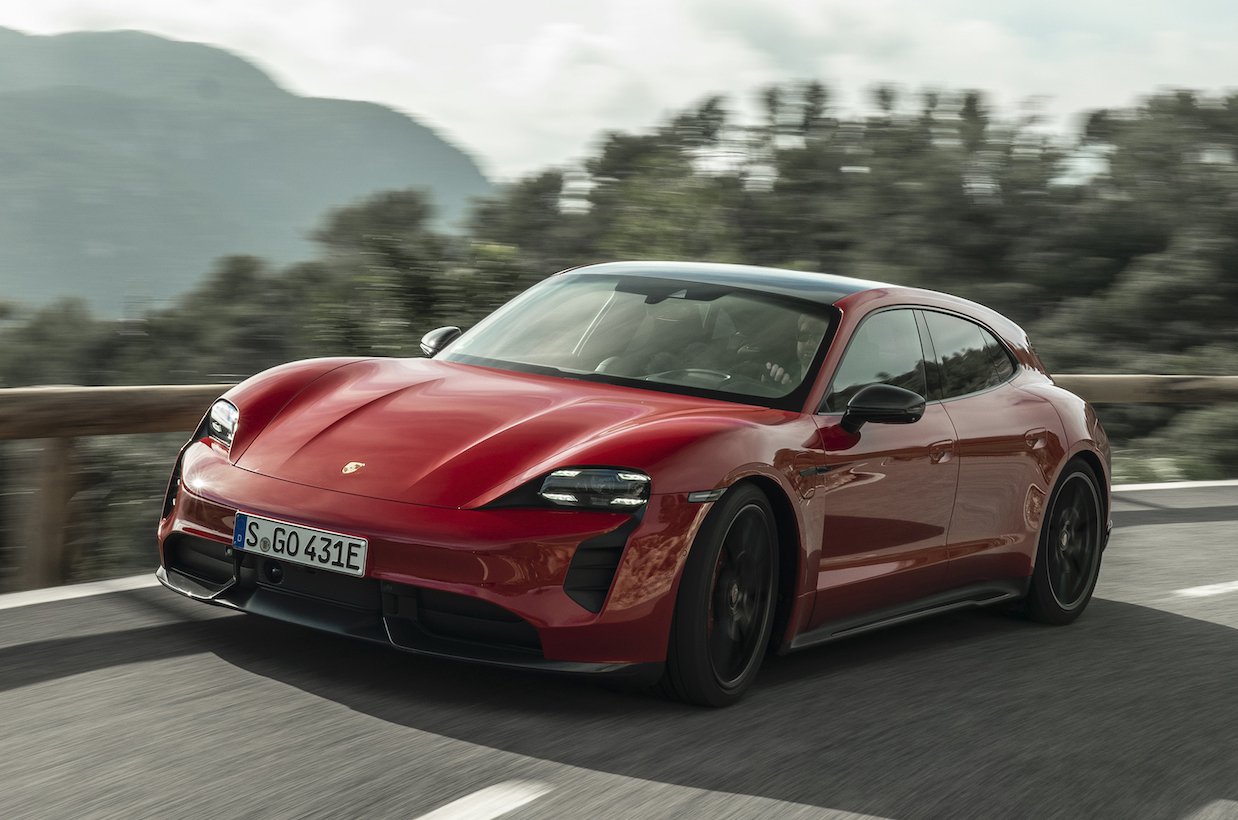
The Volkswagen Passat Estate has the biggest boot in the class, at 650 litres. The Passat also gets a plush interior and a broad engine range, but as an all-rounder we rate the slightly smaller Skoda Octavia Estate more highly. If you’re willing to sacrifice just 10 litres of boot space, the Skoda is nearly as posh inside and very comfy to travel in, while being quite a bit more affordable than the Passat.
If you’re looking for the estate car which will put the biggest smile on your face (and you're shopping with a hefty budget), nothing beats the BMW M3 Touring. It provides the perfect blend of savage performance and playful handling, and there’s enough space in the boot for seven carry-on suitcases. For anyone not seeking a fire-breathing performance car, the regular BMW 3 Series Touring still offers sweet handling, brilliant steering and a high-quality interior.
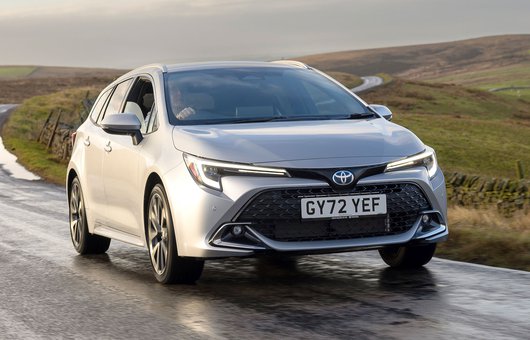
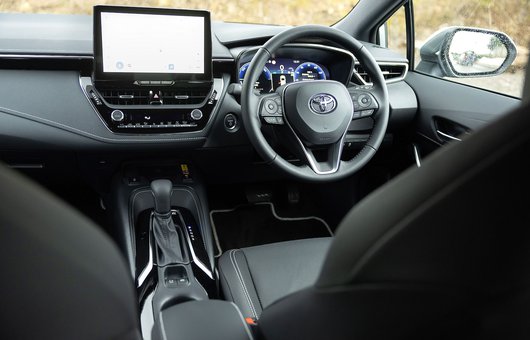
The Toyota Corolla Touring Sports is the best estate car you can buy. This hybrid estate offers super-low fuel consumption and CO2 emissions that make it an excellent choice for both private buyers and company car drivers.
In addition, the Corolla's ride is cosseting and its standard spec is generous; even entry-level models come with automatic lights, dual-zone climate control and heated front seats.
There’s no need to look beyond the cheapest 1.8-litre version, either, because this offers all the performance you’re likely to need, while officially returning more than 60mpg. Although that’s not to say the more powerful 2.0-litre option is thirsty; it actually proved even more frugal than the entry-level engine in official tests.
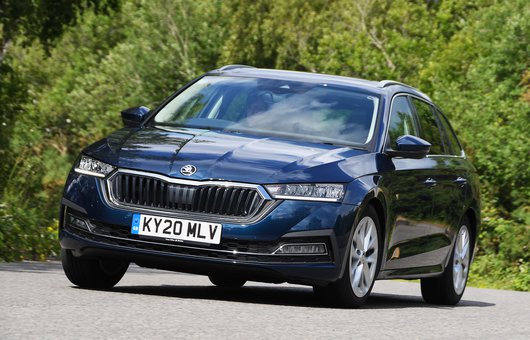
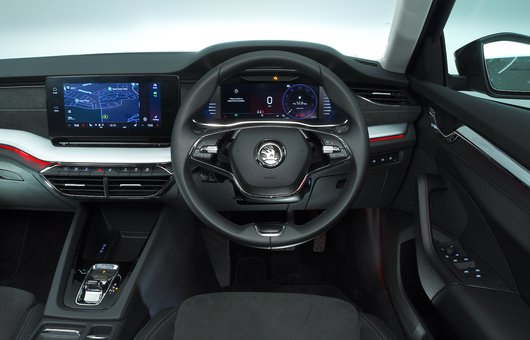
In at number two is the Skoda Octavia Estate, which strikes an excellent balance between practicality, comfort, low running costs and value.
All versions of the Skoda Octavia give you loads of interior space, but the estate version adds a whopping boot for even greater practicality.
We managed to fit nine carry-on suitcases in the boot; that’s one shy of what the larger Mercedes E-Class Estate can hold, but still enough to ensure that none of your passengers will need to pack light.
Our favourite engine is the 1.5 TSI 150 petrol, which offers a welcome performance boost over the entry-level 1.0 TSI 110 petrol engine. We’d also recommend stepping up to SE Technology trim – this adds front parking sensors and sat-nav to the already generous equipment list.
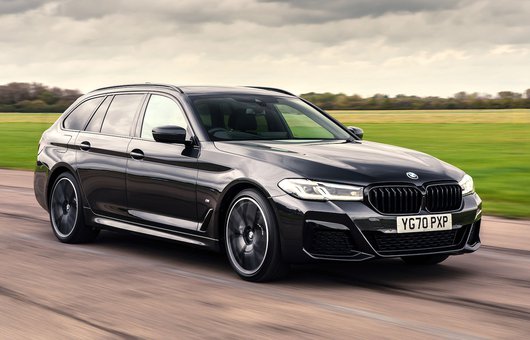
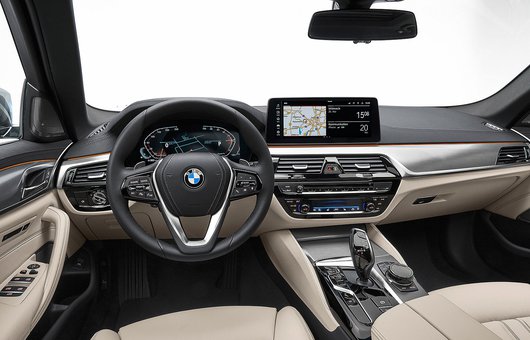
The latest 5 Series Touring shows BMW at the top of its game. This is a hugely appealing executive estate car because it's comfortable, quiet and enjoyable to drive, with an interior that feels very classy.
Standard self-levelling rear suspension helps it to cope with the heftiest of loads. And in our test, the 5 Series Touring swallowed a very respectable eight carry-on suitcases.
There’s a range of petrol and diesel engines to choose from, plus a frugal plug-in hybrid (PHEV) with an official electric range of up to 35 miles.
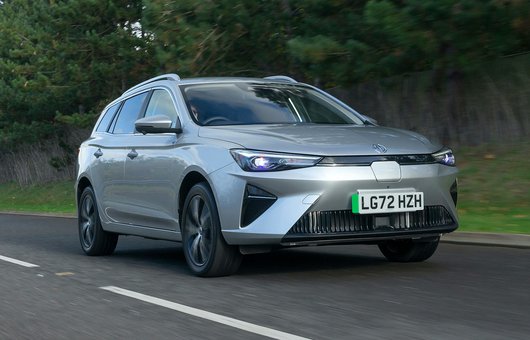
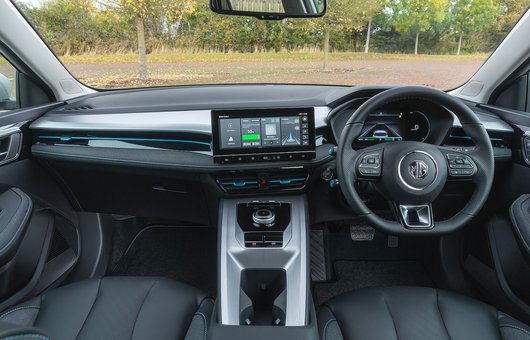
There aren’t currently many fully electric estate cars to choose from, but the MG5 EV is the best of the breed. It combines a respectable range (officially up to 250 miles) with a comfortable ride and serenity at speed.
True, most combustion-engined estate car rivals can carry more, but the MG5 EV still has enough space to handle your weekly shop, holiday luggage or a large child’s buggy.
You get a lot of kit for your money with the MG5, too; even entry-level SE models come with 16in alloy wheels, adaptive cruise control and keyless entry and start.
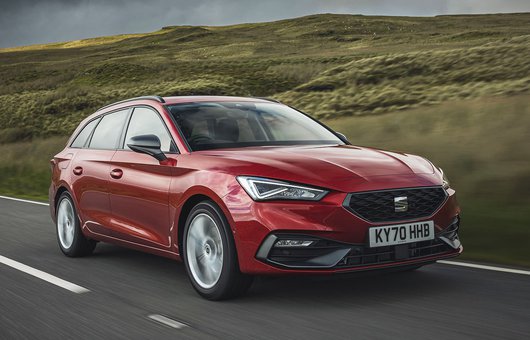
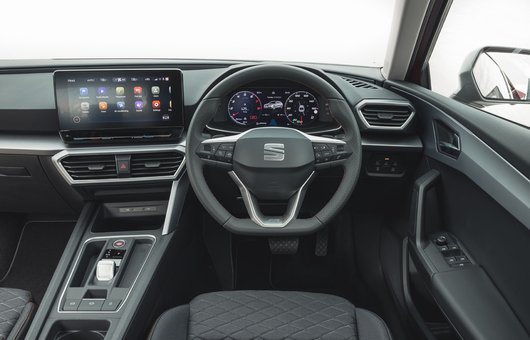
The regular Seat Leon family hatchback is one of the best cars in its class to drive, and likewise, this Leon Estate handles very tidily indeed.
While FR models feature sports suspension that can feel a little firm, most other versions get a softer set-up that does a good job of rounding off ruts and bumps in the road.
Elsewhere, the Leon offers loads of space for both passengers and luggage, and no matter which engine option you choose, you shouldn’t find it expensive to run. Add in attractive pricing and running costs and the Leon Estate is an excellent choice.
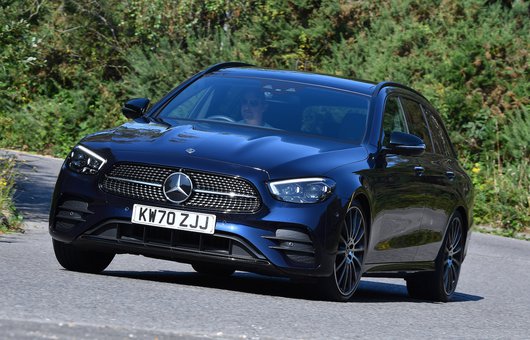
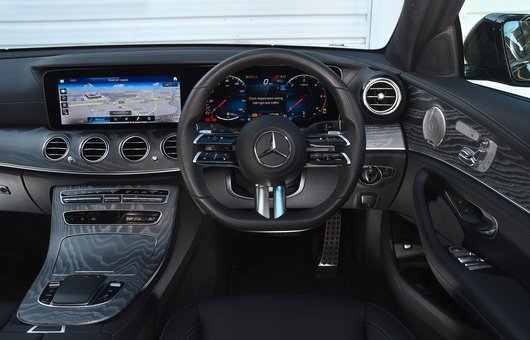
Mercedes has a long history of building large family estate cars, and the latest E-Class Estate is its best yet.
It offers more luggage space than most of its rivals, fitting 10 carry-on suitcases in our tests, and there’s plenty of room for your passengers to stretch out.
The interior feels sophisticated and plush, and the E-Class’s infotainment system is responsive and features menus that are well laid out.
Our pick of the E-Class’s engine range is the 191bhp 2.0-litre diesel found in the E220d, but whichever version of the E-Class you go for, make sure you specify air suspension; it’s an expensive option, but it delivers a dramatic improvement in ride comfort.
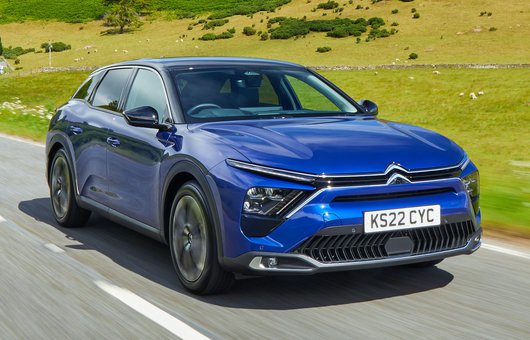
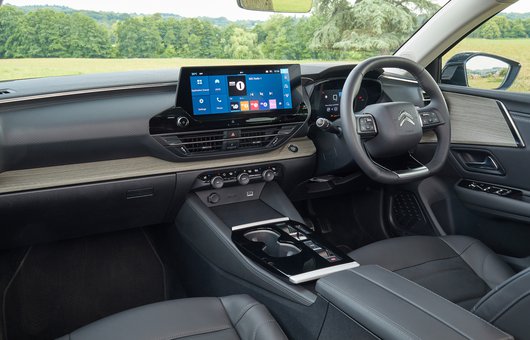
The Citroën C5 X will cost more to run as a company car than some rival estates, even if you choose the fuel-saving plug-in hybrid version, because its official electric-only range of 39 miles places it in a higher tax band.
Still, the C5 X is impressively comfortable, and it's hard to beat in terms of refinement, with engine noise fading away at motorway speeds and wind and road noise being suppressed better than most rivals can manage.
The boot is smaller than some others here, but if you’re looking for an estate car with a slightly raised, SUV-like driving position, the C5 X has you covered.
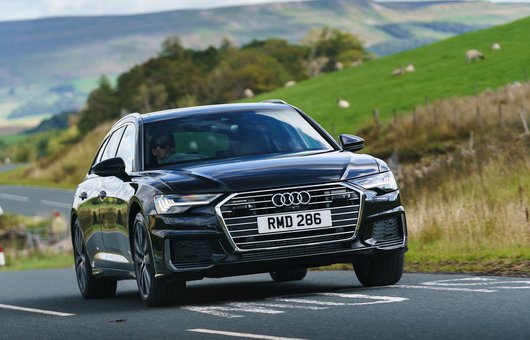
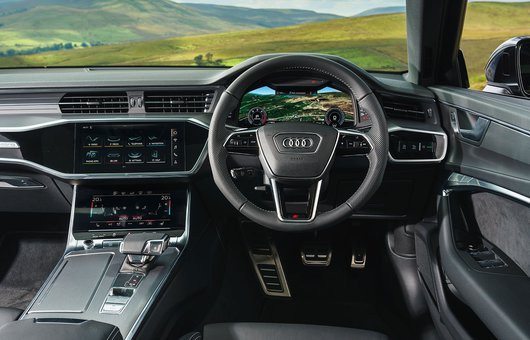
The Audi A6 Avant is a comfortable and beautifully built estate car which, despite not having as big a boot as its closest rivals, still forms a compelling package.
The entry-level diesel engine (badged 40 TDI) is the one we’d go for. It trades performance blows with the entry-level diesel offerings in the BMW 5 Series Touring and Mercedes E-Class Estate, while being quieter when on the move than both.
However, we would recommend adding Audi’s optional four-wheel drive system to improve traction. While this doesn’t bring handling up to the standard set by the Jaguar XF Sportbrake, it reduces the tendency for the steering wheel to tug unnaturally when you accelerate hard.
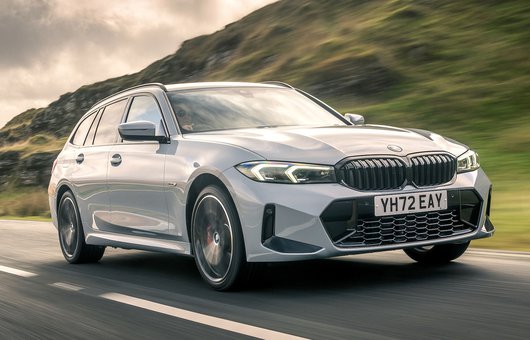
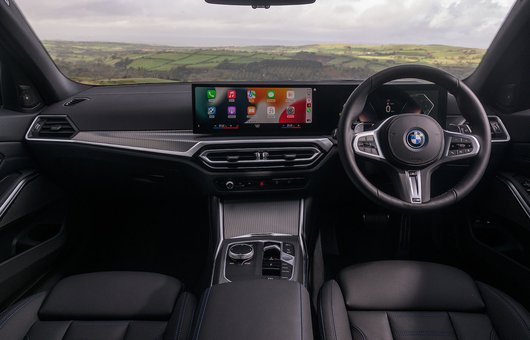
BMW's latest 3 Series is its best-steering car of recent times, and the 3 Series Touring estate and matches this with stellar body control and plenty of grip, yet still manages to serve up good ride comfort and relaxing refinement.
Add to all that a spacious interior – featuring one of the best infotainment systems you’ll find on any new car – and the tax-efficient plug-in hybrid tech of the 330e model, and there's an awful lot to like.
True, plenty of other estate car rivals have bigger boots, but the 40/20/40 split rear seats and separately opening tailgate window of the 3 Series Touring are nifty practical touches.
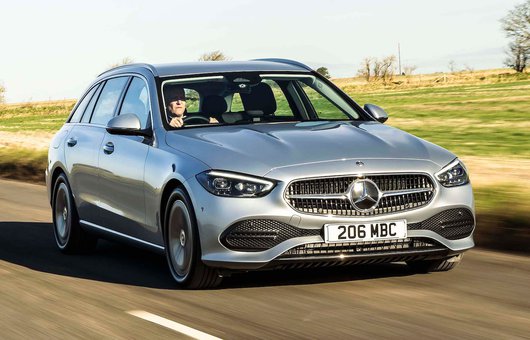
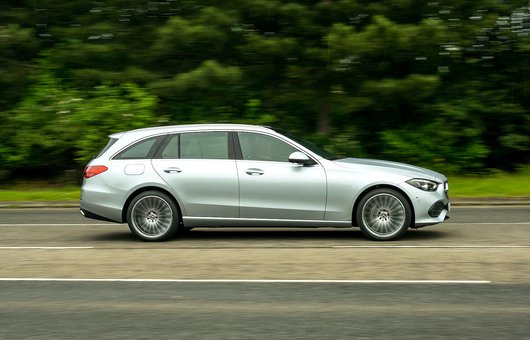
The Mercedes C-Class Estate may not be as fun to drive as the BMW 3 Series Touring, but it’s still a great choice thanks to its comfy ride and a range of punchy yet efficient engines.
Speaking of engines, our pick of the bunch for private buyers is the C220d diesel. It can propel the C-Class Estate from 0-62mph in 7.4sec, and officially return more than 60mpg.
The C300e plug-in hybrid, meanwhile, is the best bet for company car drivers – its 69-mile official electric-only range keeps benefit-in-kind tax bills low, while standard rear air suspension means the PHEV has the comfiest ride in the C-Class range.
For all the latest reviews, advice and new car deals, sign up to the What Car? newsletter here

